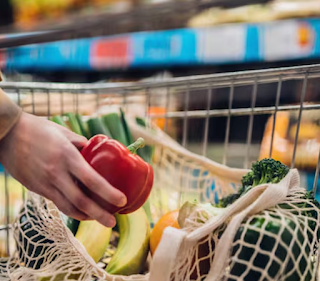India’s retail inflation has dipped to a four-month low of 5.22% in December 2024, offering much-needed relief to consumers and signaling a potential stabilization of the country’s economic outlook. This decline marks a consistent trend in inflationary pressures, bringing it within the Reserve Bank of India’s (RBI) target range of 2-6%. The Ministry of Statistics and Programme Implementation (MoSPI) reported that this reduction in inflation was primarily driven by a slowdown in food prices, highlighting the role that food inflation plays in the broader economic landscape.
Key Drivers of Easing Inflation
The primary factor contributing to the decrease in retail inflation was the moderation of food price inflation, which fell to 8.39% in December from 9.04% in November. The reduction is attributed to a combination of seasonal factors, improved supply chain efficiency, and favorable climatic conditions that helped stabilize food prices. While this is encouraging news, it is important to note that certain categories of food, such as meat, fish, eggs, and fruits, saw prices rise faster than in previous months. This highlights that while the overall food inflation rate has moderated, pockets of inflation remain and could continue to exert upward pressure on the overall price index.
Food prices had been a major concern for over a year, especially during the period between November 2023 and June 2024 when inflation remained above 7% due to the impact of erratic monsoon rains. The easing in food inflation represents a positive shift; however, economists caution that food price volatility remains a significant challenge, especially in the context of global supply chain disruptions and unpredictable weather patterns. The fact that food prices remain sensitive to supply-side shocks underscores the vulnerability of households, especially lower-income groups, who spend a larger share of their income on food.
Regional Disparities in Inflation Trends
Inflation rates in India’s various states reveal stark regional disparities. While the national average of 5.22% provides an overall benchmark, individual states have experienced significantly different inflationary pressures. In December 2024, 13 out of 22 states reported inflation rates above the national average, indicating that localized economic conditions and regional disparities in food prices play a crucial role in shaping inflation trends. For example, states such as Andhra Pradesh, Gujarat, and Maharashtra reported lower-than-average inflation, reflecting less severe price pressures. These variations can be attributed to a range of factors, including regional agricultural output, labor market conditions, and local policy measures. As such, addressing inflation effectively in India will require a nuanced understanding of regional dynamics, with targeted interventions that address the specific needs of different states.
RBI's Conservative Approach to Interest Rates
The Reserve Bank of India’s decision to hold its benchmark repo rate steady at 6.5% during its December 2024 Monetary Policy Committee (MPC) meeting signals a cautious approach to managing inflation. The RBI’s primary concern remains balancing the need to control inflation while fostering economic growth, particularly in light of global economic uncertainties. By maintaining the current repo rate, the RBI is signaling its commitment to ensuring that inflationary pressures are kept in check, without overly stifling consumption and investment growth. This decision is also in line with the RBI’s medium-term inflation target of 4%, which it views as the optimal rate for promoting both price stability and economic growth.
At the same time, the RBI has acknowledged that certain structural factors, such as persistent food price inflation and weaker domestic consumption demand, may delay the achievement of its inflation target. The RBI’s revised forecast for consumer price index (CPI) inflation now stands at 4.8% for the fiscal year 2025, up from its previous estimate of 4.5%. This increase in the inflation projection is largely due to the continued challenges posed by food prices, which remain volatile, as well as the slower-than-expected recovery in consumption.
Economic Outlook for 2025
As India enters 2025, the economic outlook presents both opportunities and challenges. The easing inflation offers some relief to households who have been burdened by rising prices over the past year. However, the path forward remains uncertain, with food price volatility and global economic headwinds continuing to pose significant risks to inflation stability. The country’s economic performance in the coming year will likely depend on several factors, including the effectiveness of government policies in mitigating inflationary pressures, the pace of recovery in domestic demand, and the impact of global developments such as oil price fluctuations and supply chain disruptions.
The RBI's cautious stance on interest rates and its focus on achieving a balanced monetary policy will be critical in managing inflation without undermining growth prospects. Additionally, the government’s fiscal measures, including subsidies and welfare programs, will play a crucial role in supporting vulnerable segments of the population. The continued focus on strengthening the agricultural sector, improving supply chain infrastructure, and boosting domestic manufacturing will be key drivers in reducing inflationary pressures over the medium term.
In conclusion, while the easing of inflation in December 2024 brings some relief, the journey ahead for India’s economy remains challenging. Policymakers will need to navigate a delicate balance between controlling inflation and promoting economic growth, while addressing regional disparities and the ongoing concerns over food price volatility. The actions taken in 2025 will play a pivotal role in shaping India’s inflation trajectory and its broader economic health in the years to come.



